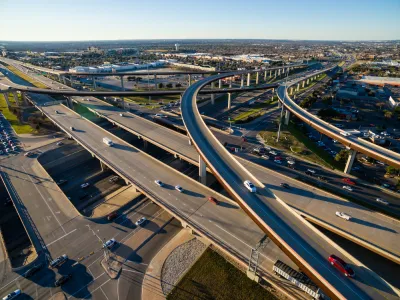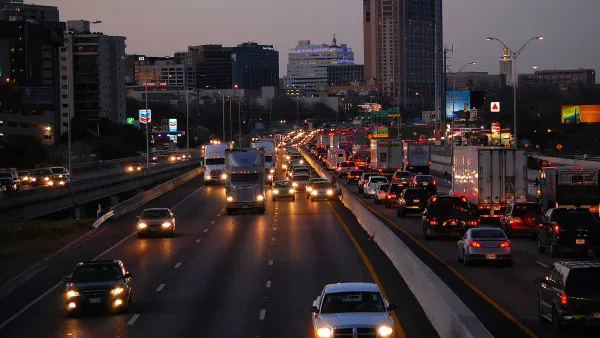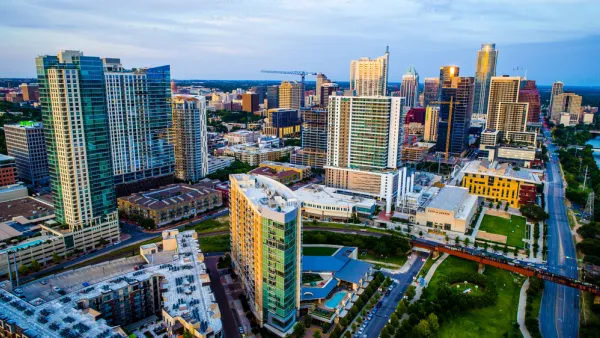A proposal to widen I-35 has drawn criticism from community members who want to see the city shift away from car-centric development.

Austinites are engaged in a heated debate over the Capital Express Project, a controversial "$7.5 billion plan to expand the abhorred stretch of I-35 that snakes through the center of Austin" by adding two levels of tunnels and adding several new lanes. As reported by David Leffler, transportation advocates argue that the plan is "the blueprint for an ineffective, outdated strategy that would only spur sprawl" and induce more traffic and car-centric development. "If allowed to move forward, TxDOT’s proposed expansion will engulf nearly 150 homes and businesses along the interstate."
Opponents of the expansion plan have proposed several alternatives. "For context, there are three community-drawn proposals that would limit the highway’s existing footprint, downsize it to an urban boulevard, or even incorporate Klyde Warren–inspired green spaces, but the state has shown little interest in entertaining them."
Yet just two years ago, "Austin voters approved a $7 billion mass transit bond," signaling that "residents don't want bigger highways." Austin Mayor Pro Tem Natasha Harper-Madison says city leaders must "understand that [the project] will impact so many core aspects of our city’s future" and "make a careful, informed, and thoughtful decision." Harper-Madison encourages residents to participate in TxDOT's public comment period "because transportation touches so many parts of our daily lives, from the way we explore our cities and the neighbors we live nearby to our ability to connect with people from different communities, income levels, and cultures."
FULL STORY: “No wider, no higher”: Inside Austin’s red-hot fight over I-35 expansion

National Parks Layoffs Will Cause Communities to Lose Billions
Thousands of essential park workers were laid off this week, just before the busy spring break season.

Retro-silient?: America’s First “Eco-burb,” The Woodlands Turns 50
A master-planned community north of Houston offers lessons on green infrastructure and resilient design, but falls short of its founder’s lofty affordability and walkability goals.

Delivering for America Plan Will Downgrade Mail Service in at Least 49.5 Percent of Zip Codes
Republican and Democrat lawmakers criticize the plan for its disproportionate negative impact on rural communities.

Test News Post 1
This is a summary

Test News Headline 46
Test for the image on the front page.

Balancing Bombs and Butterflies: How the National Guard Protects a Rare Species
The National Guard at Fort Indiantown Gap uses GIS technology and land management strategies to balance military training with conservation efforts, ensuring the survival of the rare eastern regal fritillary butterfly.
Urban Design for Planners 1: Software Tools
This six-course series explores essential urban design concepts using open source software and equips planners with the tools they need to participate fully in the urban design process.
Planning for Universal Design
Learn the tools for implementing Universal Design in planning regulations.
EMC Planning Group, Inc.
Planetizen
Planetizen
Mpact (formerly Rail~Volution)
Great Falls Development Authority, Inc.
HUDs Office of Policy Development and Research
NYU Wagner Graduate School of Public Service





























